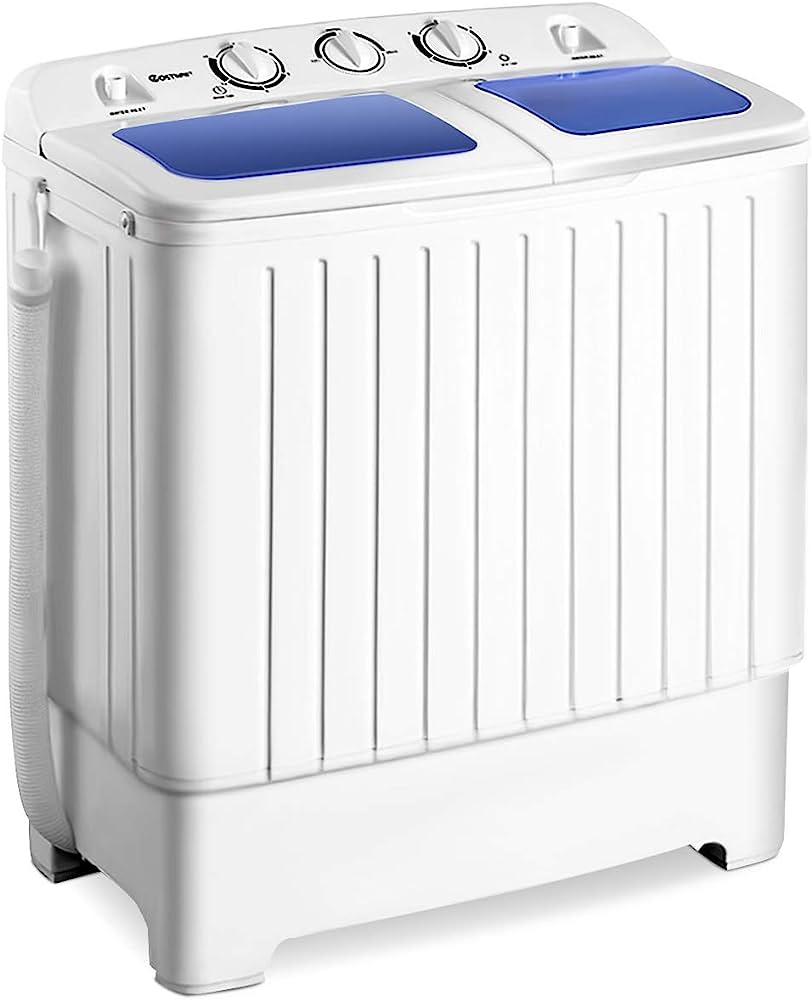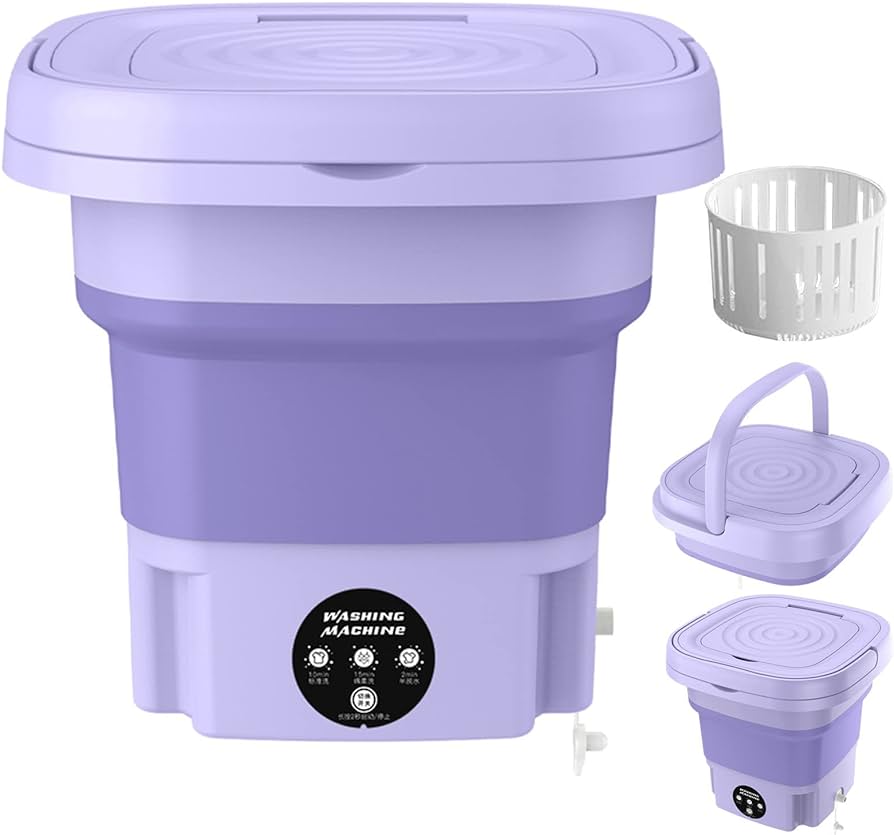Introduction
Despite regular cleaning efforts, it can be frustrating to encounter persistent odors emanating from your washing machine. These unpleasant smells can transfer onto your clothes and affect their freshness. To address this issue effectively, it is essential to understand the potential causes of washing machine odors and implement targeted solutions. In this guide, we will explore common culprits behind lingering smells in washing machines and provide specific strategies to eliminate those odors and keep your laundry smelling clean.

Why does my washing machine smell even after cleaning?
Hidden Dirt and Residue
1.1. Cleaning Challenges
Certain areas of the washing machine are prone to gathering dirt, soap scum, and lint over time. These hidden pockets can become breeding grounds for bacteria and mold, resulting in persistent odors.
1.2. Problematic Areas
Pay attention to areas such as the rubber door gasket or seal, detergent dispensers, lint traps, and filters, as well as the inside drum of the washing machine. These areas frequently harbor residue that contributes to unpleasant odors.
1.3. Cleaning Strategy
Regularly inspect and clean these hidden areas. Wipe down the door gasket with a cloth dampened with a mixture of water and vinegar or a mild detergent. Remove and clean detergent dispensers and filters according to the manufacturer’s recommendations. Additionally, run regular maintenance cycles without any laundry using hot water and vinegar to clean the interior drum thoroughly.
Soap and Detergent Buildup
2.1. Residue Accumulation
Excessive use of detergent or using too much soap can lead to residue buildup in the machine and on clothing. This residue can be a breeding ground for bacteria and cause unpleasant odors.
2.2. Proper Detergent Measurement
Be mindful of the recommended amount of detergent to use for each load. Follow the guidelines provided on the detergent packaging and adjust the quantity based on the water hardness level in your area and the size of the load being washed.
2.3. Periodic Deep Cleaning
To remove existing soap and detergent residue, run an empty cycle with hot water and vinegar or a washing machine cleaner. This deep cleaning process helps eliminate buildup and eliminate associated odors.
Moisture and Humidity
3.1. Damp Environment
The warm and moist conditions inside a washing machine provide an ideal environment for mold and mildew growth, leading to persistent musty odors.
3.2. Proper Ventilation
Allow adequate ventilation to prevent excessive moisture buildup. Leave the washing machine door open between uses to promote airflow and allow the interior to dry.
3.3. Absorbing Moisture
Place a moisture-absorbing product, such as a moisture absorber packet or a bowl of baking soda, inside the machine when not in use. These products help absorb excess moisture and minimize the growth of mold and mildew.
Clogged Drains and Plumbing Issues
4.1. Blockages and Residue
Clogged or partially clogged drains and plumbing lines can cause water to back up and accumulate inside the washing machine, resulting in unpleasant smells.
4.2. Regular Drain Cleaning
Clean and inspect the washing machine’s drain pipe or hose periodically. Remove any visible debris or buildup, and if necessary, use a drain cleaner specifically formulated for washing machine use. Additionally, ensure the plumbing lines associated with the washing machine are free from obstructions.
4.3. Proper Plumbing Installation
Confirm that the washing machine drain hose is not positioned too far down the drainpipe, as this can lead to water backup. It is recommended to consult the manufacturer’s guidelines or a professional plumber to ensure proper installation.
High-Efficiency (HE) Machines
5.1. Efficient, but Odor-Prone
High-efficiency washing machines, while known for their water and energy efficiency, can be more prone to odors due to their design and lower water usage.
5.2. Routine Cleaning
Clean HE machines regularly, paying special attention to the rubber gasket/door seal and the detergent dispensing drawer. These areas are especially vulnerable to accumulation of detergent residue and bacteria growth. You can also use the self-cleaning feature of this type of washing machine.
5.3. Maintenance and Odor Control Products
Incorporate specialized odor control products specifically designed for high-efficiency machines. These products can be added to the machine during regular wash cycles to help eliminate odors and maintain freshness.
Hard Water Deposits
6.1. Mineral Buildup
If you live in an area with hard water, mineral deposits can accumulate on the drum, agitator, and other internal components of the washing machine. Over time, these deposits can contribute to persistent odors.
6.2. Descale and Clean
Periodically descale the washing machine using a descaling agent or a vinegar solution to dissolve mineral deposits. Follow the manufacturer’s recommendations for the appropriate descaling method and frequency.
6.3. Water Softening
Consider installing a water softening system or using water-softening additives to minimize mineral buildup. Softening the water can help reduce the formation of deposits and prevent associated odors.
Regular Maintenance and Preventive Measures
7.1. Regular Maintenance Schedule
Establish a routine maintenance schedule for your washing machine to prevent odors from recurring. This schedule should include periodic cleaning of removable parts, such as filters and dispensers, as well as deep cleaning cycles to eliminate residue.
7.2. Properly Sorting and Preparing Laundry
Sort laundry appropriately to prevent mixing heavily soiled items with lightly soiled or delicate clothing. Pre-treat heavily stained garments before washing. Avoid overloading the machine, as this can lead to ineffective cleaning and potential odor transfer.
7.3. Prompt Removal of Wet Laundry
Remove wet laundry from the washing machine promptly after the wash cycle completes. Allowing wet clothing to sit in the machine can contribute to the development of odors.
Seeking Professional Assistance
8.1. Persistent Problems
If persistent odors continue to plague your washing machine despite your cleaning efforts, consider seeking assistance from a professional appliance repair technician. They can evaluate the machine for any underlying issues that may be causing the odors.
8.2. Manufacturer Support
Contact the washing machine manufacturer’s customer support for guidance. They may have specific recommendations or troubleshooting steps to address persistent odor issues.
Conclusion
Persistent odors in a washing machine can be frustrating and impact the freshness of your clothes. By addressing common causes such as hidden dirt and residue, soap and detergent buildup, moisture and humidity issues, clogged drains, high-efficiency machine considerations, hard water deposits, and regular maintenance practices, you can eliminate odors and keep your washing machine smelling clean. Implement the recommended strategies to restore the freshness of your laundry and enjoy a pleasant washing experience.

